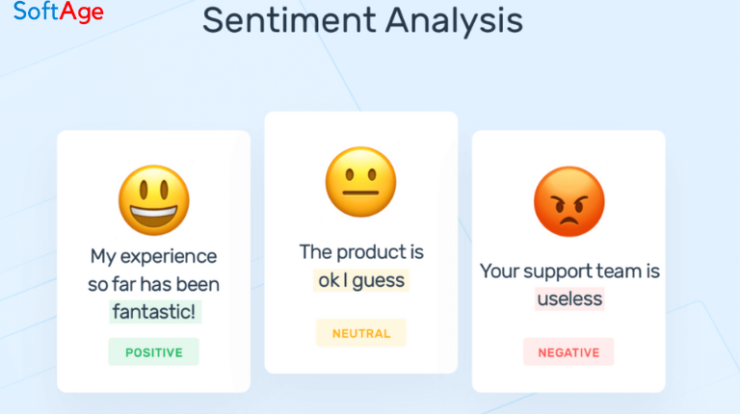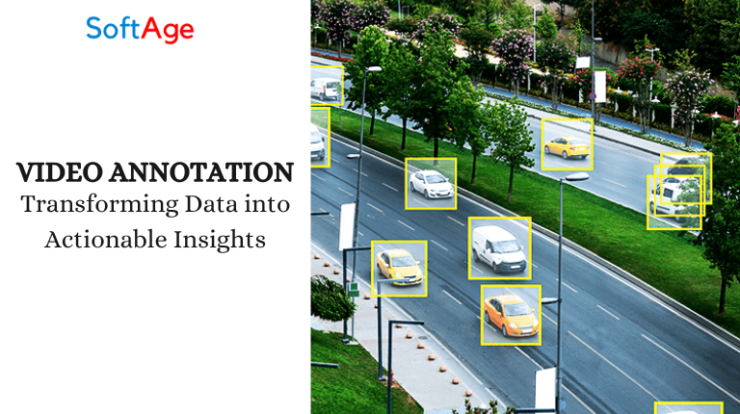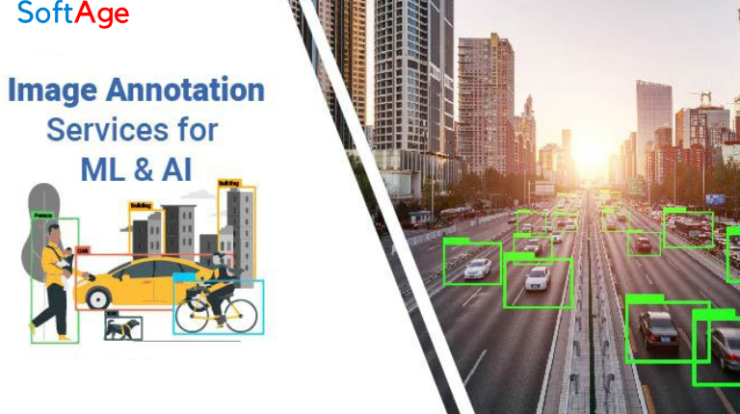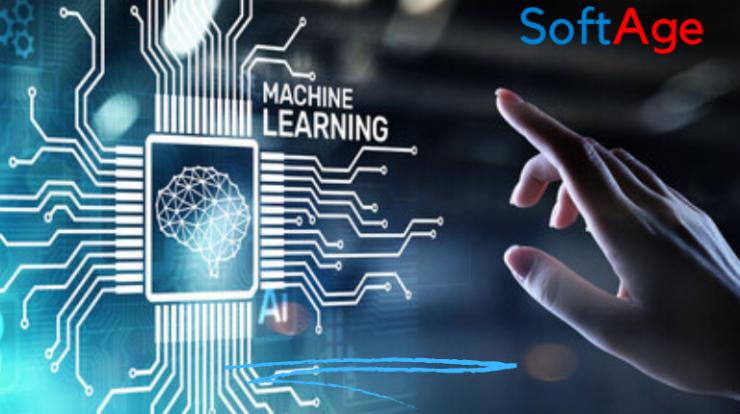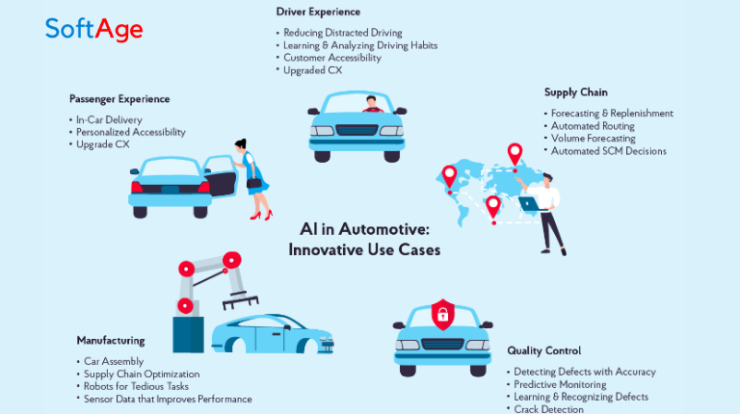
The automotive industry is undergoing a seismic transformation, and at the heart of this evolution lies the integration of Artificial Intelligence (AI). From enhancing safety features to revolutionizing the driving experience, AI has become a driving force in shaping the future of automobiles. In this blog post, we will explore the myriad ways in which AI is reshaping the automotive landscape.
AI-Powered Autonomous Driving:
One of the most significant advancements catalyzed by AI in the automotive sector is the development of autonomous vehicles. AI algorithms, particularly those based on deep learning, enable cars to perceive their surroundings, make split-second decisions, and navigate complex road conditions. Companies like Tesla, Waymo, and Uber have been at the forefront of developing and testing autonomous vehicles, showcasing the potential for a future where driving is no longer solely a human endeavor.
- Sensor Fusion and Perception: AI algorithms process data from various sensors, including cameras, LiDAR, radar, and ultrasonic sensors, to create a comprehensive understanding of the vehicle’s environment. This sensor fusion enables accurate perception, essential for safe autonomous driving.
- Decision-Making and Path Planning: AI plays a pivotal role in decision-making processes for autonomous vehicles. These systems evaluate real-time data, predict potential scenarios, and choose the optimal path based on safety and efficiency considerations. Machine learning models continuously improve decision-making capabilities through experience.
Enhancing Vehicle Safety:
AI is a game-changer when it comes to enhancing safety features in traditional and autonomous vehicles alike.
- Collision Avoidance Systems: AI-powered collision avoidance systems use advanced sensors and real-time data analysis to detect potential collisions and take preventive actions. These systems can automatically apply brakes or adjust the vehicle’s trajectory to avoid accidents.
- Driver Assistance Systems: AI is behind the development of sophisticated driver assistance systems, such as adaptive cruise control, lane departure warnings, and automatic emergency braking. These systems augment the driver’s capabilities and contribute to overall road safety.
Improving Manufacturing Processes:
Beyond the driving experience, AI is optimizing the manufacturing processes within the automotive industry.
- Predictive Maintenance: AI-driven predictive maintenance systems analyze data from sensors embedded in vehicles to predict potential issues before they escalate. This proactive approach helps prevent breakdowns, reduces downtime, and extends the lifespan of vehicles.
- Supply Chain Optimization: AI algorithms optimize supply chain management by predicting demand, streamlining inventory, and identifying potential bottlenecks. This leads to more efficient production processes and cost savings for manufacturers.
Revolutionizing the In-Car Experience:
AI is redefining the in-car experience, making vehicles not just a mode of transportation but intelligent, connected spaces.
- Natural Language Processing (NLP): Voice-activated AI assistants, powered by NLP, allow drivers to control various functions using voice commands. This hands-free interaction enhances safety and convenience, enabling drivers to focus on the road.
- Personalized User Experience: AI analyses user preferences and behavior to personalize in-car settings, from music playlists to climate control. This level of customization creates a more enjoyable and comfortable driving experience.
Challenges and Ethical Considerations:
While the integration of AI in the automotive industry brings about transformative benefits, it also raises important challenges and ethical considerations.
- Data Security and Privacy: Connected vehicles generate vast amounts of data, raising concerns about data security and privacy. Ensuring the secure storage and transmission of this data is crucial to prevent unauthorized access and potential misuse.
- Ethical Decision-Making: Autonomous vehicles are faced with ethical dilemmas, such as how to prioritize the safety of the occupants versus pedestrians in certain situations. Developing universally accepted ethical guidelines for AI-driven decision-making remains a complex task.
The Future of AI in the Automotive Industry:
As technology continues to advance, the future of AI in the automotive industry holds immense potential for further innovation.
- Continued Advancements in Autonomous Driving: Research and development in AI will lead to more advanced autonomous driving capabilities, bringing us closer to a future with widespread adoption of self-driving cars.
- Enhanced Connectivity: AI will play a crucial role in further enhancing vehicle connectivity. Vehicular communication systems powered by AI will enable cars to communicate with each other and with smart infrastructure, improving traffic flow and safety.
- AI-Powered Electric Vehicles: The rise of electric vehicles (EVs) is complemented by AI technologies, optimizing battery management, charging infrastructure, and energy efficiency.
Final thoughts:
AI’s integration into the automotive industry is reshaping how we drive, ensuring safer, more efficient, and personalized transportation experiences. From autonomous driving to manufacturing optimizations and in-car AI assistants, the impact of AI is undeniable. As the industry continues to innovate, collaboration between technologists, policymakers, and manufacturers is essential to navigate the challenges and harness the full potential of AI in the automotive realm. The road ahead is exciting, with AI steering us toward a future where cars are not just machines but intelligent, adaptive companions on our journeys.


